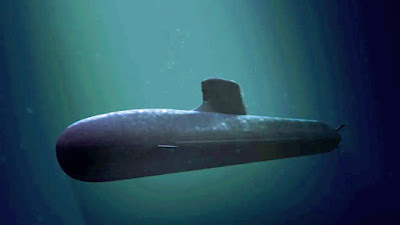It was announced on Saturday that Australia has reached a large compensation agreement with the French submarine producer Naval Group, bringing an end to a dispute that had been placing a financial strain on ties between Canberra and Paris for over a year.
In an effort to put an end to the conflict that erupted as a result of the ruthless termination of the contract to purchase 12 submarines from France, the new Prime Minister of Australia, Anthony Albanese, made the announcement that negotiations had come to an end regarding the termination of the contract between the Australian government and Naval Group and the payment of 555 million euros to the French group. Albanese made this announcement in an effort to turn the page on the conflict that erupted after the contract to purchase 12 submarine On May 26, newly elected and re-elected President Emmanuel Macron made a vow to “rebuild a bilateral partnership based on trust and respect” in order to “overcome jointly the global difficulties, first and foremost the climate emergency, and the strategic issues in the Indo-Pacific.”
However, the price will be especially difficult for Australia to pay since it will be used to settle the decision made by the previous Prime Minister, Scott Morrison, to put a halt to the program of developing future submarines. A total of about 3.4 billion Australian dollars, or 2.2 billion euros, in expenditures that have been made since the signing of the contract in 2016 may be written off as a loss due to the cancellation of the procurement of 12 submarines of the Barracuda type, which were purchased in 2016.
In order to determine how much it would cost to finish the website, a team consisting of accountants, attorneys, and computer scientists has been working tirelessly over the last several months to unravel all of the remaining threads that weave the web of the previous six years of collaborative effort. In comparison to its peak workforce of 350, Naval Group Australia now employs just fifty workers; nonetheless, the firm will be shut down for good this summer.
When Scott Morrisson informed Naval Group that he no longer wished to pursue the project, the French shipbuilder had already received payments totaling 840 million euros for the design of the submarines, the first supply contracts, assistance in the construction of the new basin in the North of Adelaide, etc. when Morrisson made his announcement. There is a remaining amount of 830 million Australian dollars to be paid (555 million euros).
This agreement has been “taken notice of” by France, which is represented by the Minister of the Armed Forces. Sébastien Lecornu told reporters in Singapore that “this agreement is important because it will allow us to open a new page in our bilateral relationship with Australia and to look forward.” “This agreement is important because it will allow us to open a new page in our bilateral relationship with Australia and to look forward.”
We at Naval Group are certain that we have signed a “fair agreement,” and we look forward to the conclusion of these discussions. However, it is important to note that we do not get any “compensation,” but rather the amounts that are technically due under the contract. The shipyard explains that “the quantities relate to the repayment of the expenses of demobilization and termination of the contract,” which are the two reasons why the agreement is being terminated. In spite of the fact that it was unable to maintain a valued client and create a future partnership, Naval Group may take some solace in the fact that the company will not have suffered any financial losses as a result of its experience in Australia. In addition, the company emphasizes that it has protected the interests of all of its French and Australian suppliers and subcontractors so that those parties do not get further embroiled in this sad situation. According to Naval Group, which is not counting on a return, all of the workers have successfully found new employment opportunities.
France has reminded everyone that despite the savagery of the split, the position of the nations will not alter, and that it would continue to be in the Indo-Pacific. Submarines manufactured by Naval Group have been exported to Malaysia and India, and the company is now working toward entering the markets of Indonesia and the Philippines.
Not to Australia, therefore, Anthony Albanese does not question the substance of the decisions made by his predecessor, even though he reaffirmed to see France as “an important ally in the Pacific” and expressed his wish to meet Emmanuel Macron in person “as soon as possible.” Albanese also expressed his desire to meet Macron “as soon as possible.”
While this is going on, Australia has not yet made a decision about what they will purchase in place of the Barracudas. Peter Dutton, a former minister of defense of Australia, said that the nation’s capital should purchase submarines from the United States rather than the United Kingdom. He made this statement without maintaining the confidentially of the ongoing research. Dutton disclosed the previously undisclosed intention to acquire Virginia-class submarines from the United States in an essay he wrote for The Australian. He said that he intended to purchase two of these submarines from the United States by the year 2030. nuclear-powered sailors and to construct a further eight vessels so that there are ten total ships in the fleet.
This endeavor was intended to serve as the primary focus of Australia’s defensive strategy against an increasingly belligerent China under the leadership of President Xi Jinping. The comments made by Dutton, who is now the leader of the opposition, have been criticized by Richard Marles, who is the new Minister of Defense and Deputy Prime Minister. Marles said that his comments “harm the national interest of Australia.” “There has been no determination made by the administration as to which kind of submarine it favors.”









+ There are no comments
Add yours